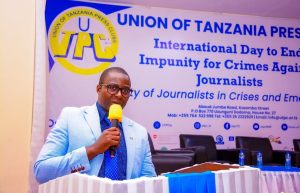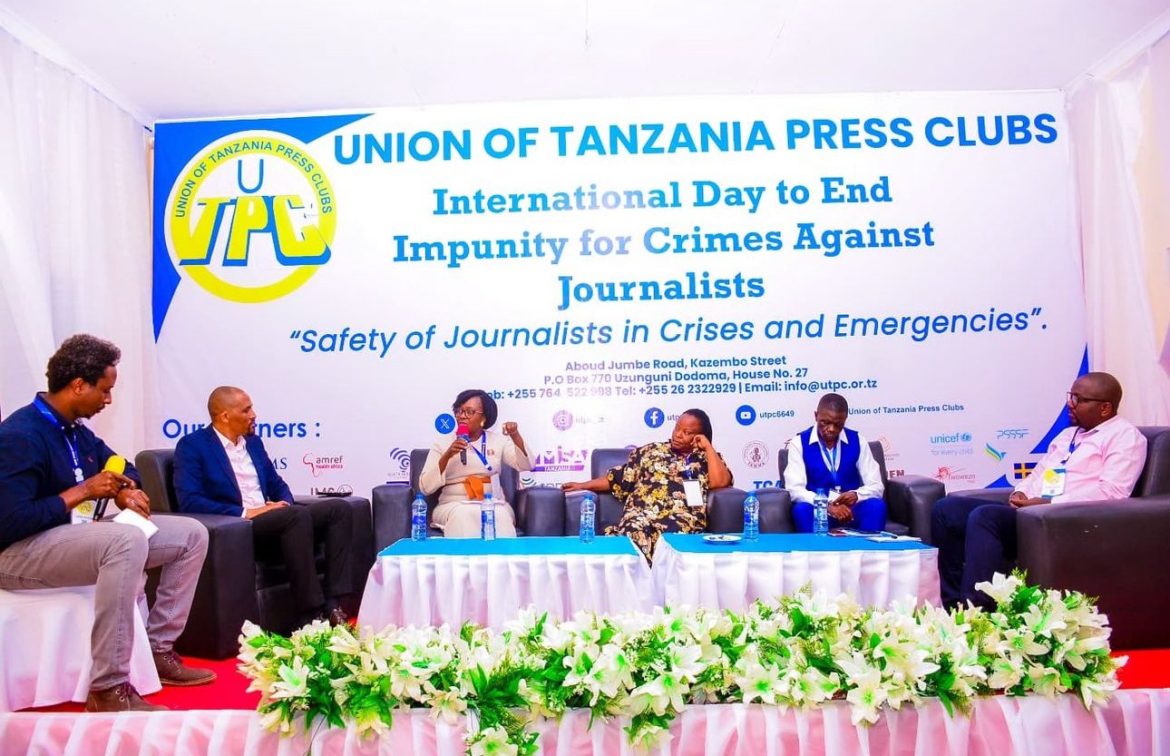From UTPC.
Stephen Chimalo a representative from the Embassy of Sweden in Tanzania, called for improved systems to protect journalists during the global commemoration of the International Day to End Impunity for Crimes Against Journalists, held in Singida.
Like their counterparts worldwide, Chimalo emphasized that journalists in Tanzania face significant challenges and impunity, while they have the freedom to move and gather news, they often lack the assurance of returning home safely.
Despite these challenges, he acknowledged the efforts of the Union of Tanzania Press Clubs (UTPC) and the International Media Support (IMS) in working to protect journalists through dialogues between the Journalists and Police force to find solutions to their shared concerns. “I congratulate IMS and UTPC for creating a platform that addresses the safety and security of journalists,” Chimalo remarked, adding that the protection of journalists extends beyond discussions to include the need for life insurance.
Fausta Musokwa, the Country Programme Manager at IMS Tanzania, highlighted the importance of implementing the United Nations Plan of Action on the Safety of Journalists and the Issue of Impunity. Said This initiative aims to create a free and safe environment for journalists and media workers, both in conflict and non-conflict situations, thereby strengthening peace, democracy, and development worldwide.
Deogratias Nsokolo, President of UTPC, noted that journalists in Tanzania often work in fear due to the impunity surrounding violations of their rights. “From January to October 2024, UTPC has recorded 14 incidents of journalist arrests, threats, and confiscation of equipment, yet the perpetrators remain unaccountable for their actions,” he stated.

Deogratias Nsokolo: President of UTPC
Additionally, UTPC Vice President, Pendo Mwakyembe, recommended that as part of this comprehensive and sustainable plan to enhance the safety and security of journalists—especially in light of the testimonies shared—it would be valuable for UTPC to explore ways to involve media editors, who are essential stakeholders in upholding and supporting journalist protection and security.
Edwin Soko, chairperson of Mwanza Press Club echoed this sentiment, stating that the lack of accountability for those who commit crimes against journalists has severely impacted the landscape of journalism in Tanzania. The environment for journalists has become increasingly precarious, marked by various forms of intimidation, harassment, and violence.
Soko suggested a multifaceted approach that includes legal reforms, greater accountability for perpetrators, and enhanced support for journalists. “Ensuring a safe environment for journalists is essential for a healthy democracy and an informed citizenry,” he concluded

